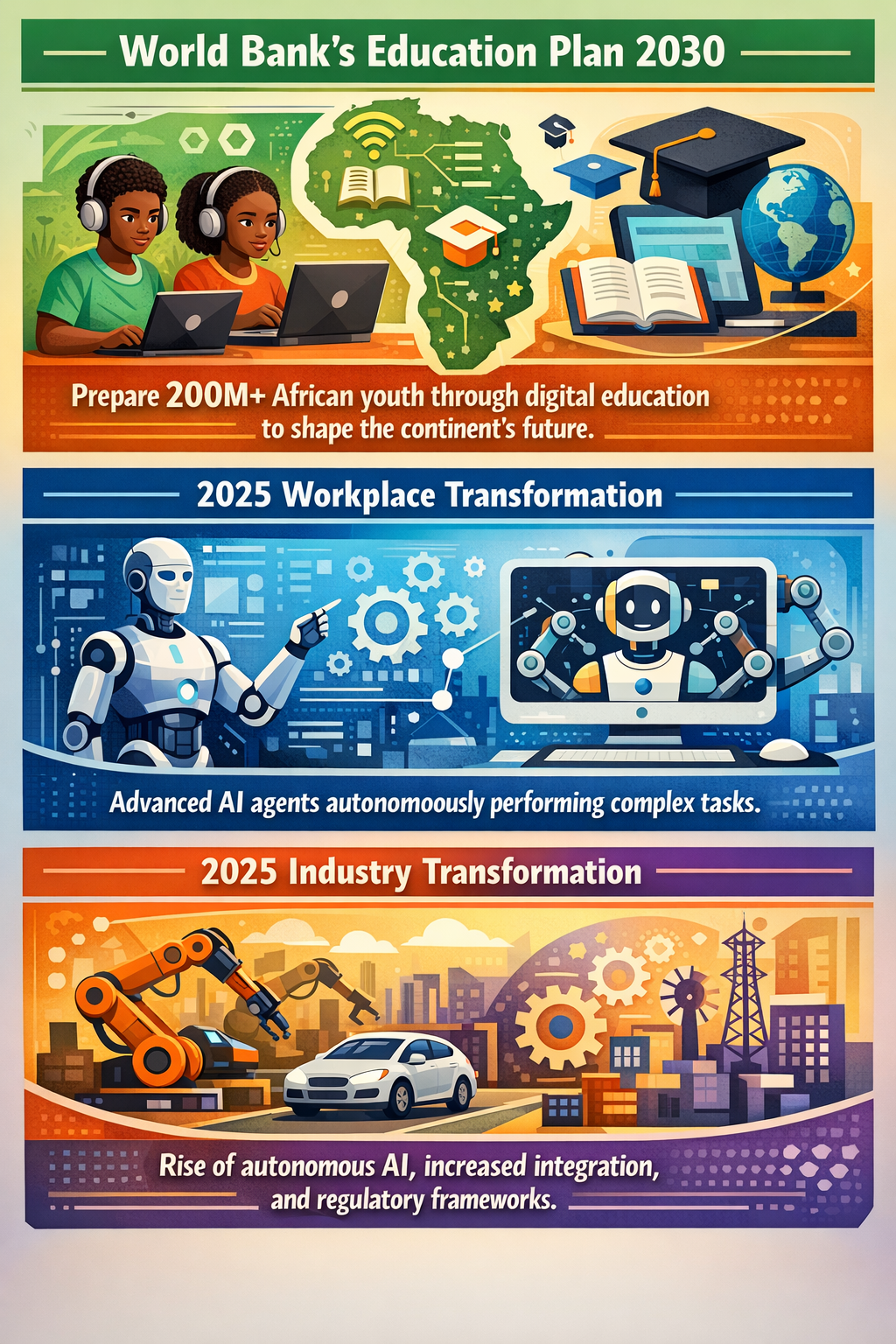Global Scans
·
Digital Transformation
·
Intelligence Briefing

Intelligence Briefing about Digital Transformation
Critical Trends Impacting the Organization
- Rapid advancement and adoption of AI, automation, and digital tools are reshaping traditional human tasks and workflows by 2026.
- By 2030, a majority (86%) of employers anticipate AI and information-processing technologies will fundamentally transform business operations, outpacing robotics and energy innovations (The Manila Times).
Key Challenges, Opportunities, and Risks
- Challenges: Workforce displacement and uneven job outlooks as roles shift; managing integration of AI with existing systems; maintaining data security and ethical AI use.
- Opportunities: Enhanced operational efficiency, improved decision-making through intelligent automation; potential to reallocate human labor to value-added activities.
- Risks: Overreliance on AI could lead to systemic vulnerabilities; possible skill gaps and inequality in adaptation among employees; regulatory and compliance uncertainties.
Scenario Development
- Best-Case: Seamless AI integration leads to vastly improved productivity, with workforce retraining programs minimizing displacement and maximizing human-AI collaboration.
- Optimistic: AI drives moderate transformation in operations; some job shifts occur but are offset by new roles created in digital management and oversight.
- Challenging: Partial adoption of AI creates operational silos; workforce skill gaps widen, causing productivity setbacks and increased inequality within the organization.
- Worst-Case: Resistance to AI adoption and poor integration cause disruption, significant job losses, security breaches, and reputational harm due to unethical practices.
Strategic Questions
- How can the organization balance automation benefits with workforce sustainability and ethical considerations?
- What investments in training and reskilling could enable employees to thrive alongside AI-driven tools?
- How might emerging digital capabilities be leveraged to create new value propositions or business models?
- What governance frameworks could be developed to manage risks associated with AI integration and data security?
Potential Actionable Insights
- The organization could proactively map current workflows to identify optimal AI augmentation points.
- Strategic partnerships with technology providers and educational institutions could facilitate skill development.
- Scenario planning exercises could be regularly updated to monitor emerging risks and opportunities.
- Early adoption of transparent AI governance policies could foster trust internally and externally.
Briefing Created: 04/01/2026